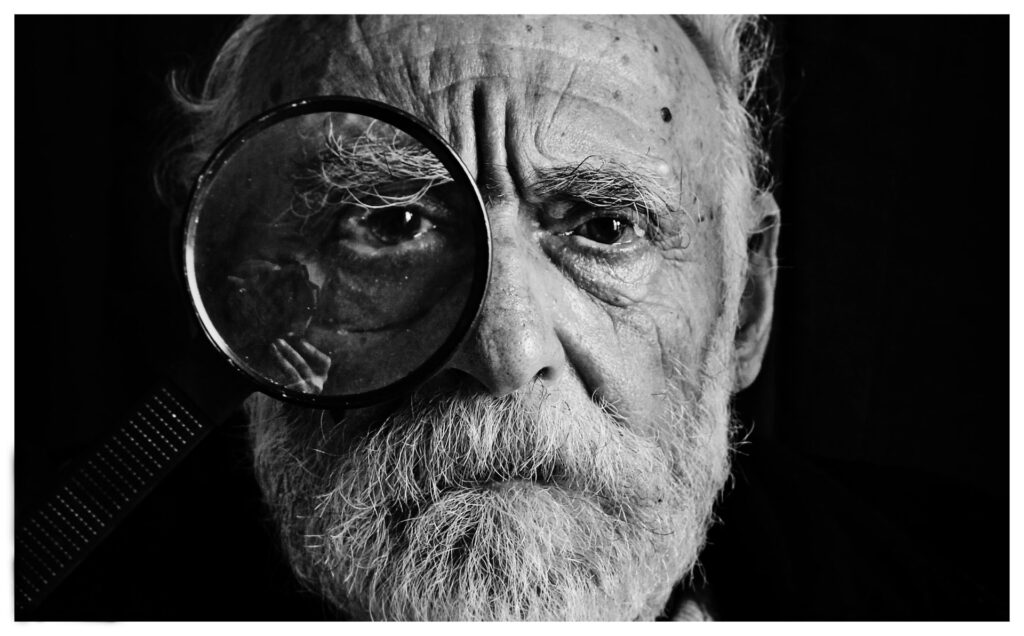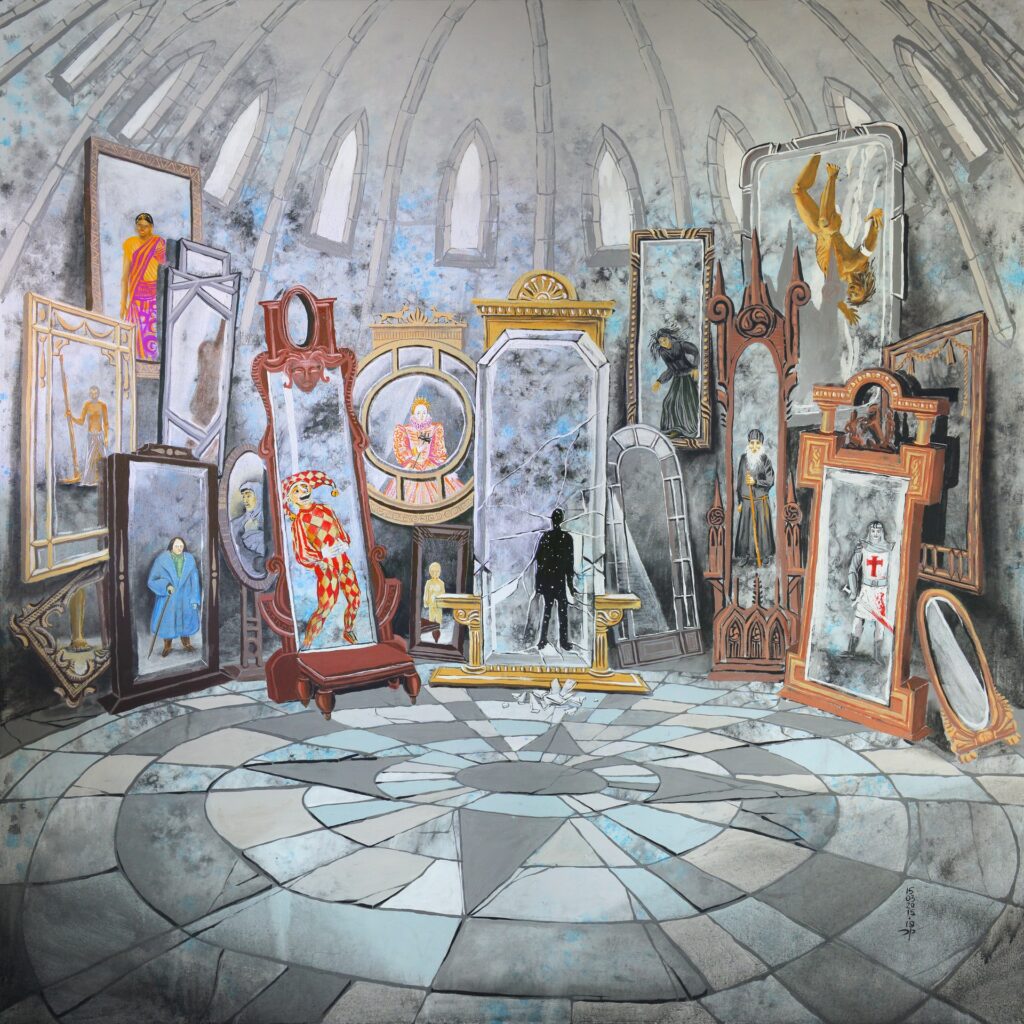Our inner world is a very complex universe.
The probability to know ourselves in totality is very low.
Is it even possible to know ourselves in part?
Why is that matter?
What do we expect to find inside us?
And by which means we can walk the path of self-exploration?
The individual journey of exploring our inner world can be long, fascinating, or even daunting.
No matter the outcome, this self-exploration affects the way we carry ourselves in the world.
Throughout history, many humans tried to crack the code of the inner world.
Socrates and the Knowledge of the Self

“The unexamined life is not worth living.”
Almost 2400 years separate us from Socrates.
In his time, the injunction “know thyself” was craved at the entrance to Apollo’s temple at Delphi in Greece.
For Socrates, knowing oneself starts with asking some hard questions about our deeply held beliefs.
He believed that all the necessary knowledge can be found in our inner world.
And the way to extract it is through dialogue with ourselves or between students and their teachers.
This is what we call the Socratic method.
By questioning our important principles, we make sure to not miss something important that can affect the quality of our life.
From a Socratic perspective, exploring the inner world wasn’t about getting in touch with feelings or knowing the true self.
Al Ghazali and the Dive in the Human Soul

“Desire makes slaves out of kings and patience makes kings out of slaves.”
If we want to summarize the work of Al Ghazali in one sentence, it would be:
“Know yourself to know your Lord.”
In The Marvels of the Heart, Al Ghazali dives into the human soul.
He focuses on the spiritual heart, its soldiers, and foes.
The soldiers are either visible (bodily members) or invisible (the will, power, knowledge, and perception).
In every heart exists negative qualities (predatory, animal, satanic). However, when the divine quality triumphs, it subdues all the rest.
Al Ghazali compares the heart to a mirror. It can reflect the true nature of things.
However, when obstacles stand in between, it fails in this role.
The obstacles can be a veil of sins, distractions with worldly life, imitative acceptance of dogma, or ignorance.
To not make things easy, the devil is constantly looking to enter the castle of the heart through his insinuations.
When we count the number of obstacles that stand on the road to Allah, it is legitimate to ask:
Is it even possible to connect with Him through self-exploration?
If our heart stands by Him, what can stand against us?
Descartes and Introspection

“I think therefore I am.”
Rene Descartes was a French philosopher of the 17th century.
His concern wasn’t the purification of the soul but rather the purification of the thoughts.
He subjected his beliefs to radical doubt to see which ones will pass the test.
The basket of apple analogy explains well his method.
If you suspect the basket to contain some rotten apples and you want to prevent the rot from spreading, you’ll need to do two things.
First, you tip the whole thing. Second, you examine each apple and put only the good ones back to the basket.
Similarly, Descartes rejected all his beliefs as if they were false. Then, he examined the truth behind each one of them.
Few beliefs survived his skeptical tests.
He couldn’t doubt his own thinking and this is what became the foundation of his philosophy.
For Descartes, finding the contaminated thoughts only requires self-knowledge and introspection.
In this sense, the cartesian inner world is something transparent and obvious.
The Inner World by Freud

“Unexpressed emotions will never die. They are buried alive and will come forth later in uglier ways.”
The cartesian inner world is easy to understand: you look inside yourself and you’ll find how it works.
For Freud is the opposite. The inner world is not transparent and certainly not clear.
So what he did is splitting the unity of the self into three distinct parts
On one end, we have the id, the center of our desires and impulses.
On the other end, we have the superego, our moralizing internal system.
In between, there’s the ego that tries to satisfy our desires in a socially appropriate way.
If the human soul was an onion, Freud is the guy who lifts each layer to look at what’s under it.
Our behaviors are not anymore meaningless but holders of symbols.
Something as trivial as a slip of a tongue can reveal information about what we’re hiding.
From Freud’s perspective, our inner world is ruled by two principles: pleasure and reality.
We come to the world as little monsters of desires. But as we grow, reality doesn’t allow us to satisfy all our appetites. So society plays this positive role in civilizing us.
The Inner World from an Islamic Perspective

There’s no idea of integration in Freud. In Islam, the self is one unity that goes through different stages.
For Freud, the inner world is ruled by the pleasure principle until our environment intervenes.
In Islam, we come to the world as pure creatures until our environment corrupts us.
Our life purpose becomes then to retrieve this primordial nature.
Descartes wanted to purify his thoughts. Islam wants us to purify our souls.
Whether society is corrupted or not, Muslims have the same standards of good behavior across time and space.
To live the good life, Islam enjoins us to discipline our souls.
The Three Stages of the Soul
In Islamic psychology, I wrote briefly about the three stages of the soul.
1- The Soul that inclines to evil:
“I do not pretend to be blameless, for man’s very soul incites him to evil unless my Lord shows mercy: He is most forgiving, most merciful.” [Quran 12:53]
2- Self-reproaching soul:
“And I do swear by the self-reproaching soul!” [Quran 75:2]
3- Soul at rest:
“But you, soul at peace: return to your Lord well pleased and well pleasing.” [Quran 27-28]
The tranquility of the soul at rest comes from faith. But here is the scary part.
The soul inclined to evil has also its tranquility coming from satisfying appetites and instincts:
“Those who do not expect to meet Us and are pleased with the life of this world, contenting themselves with it and paying no heed to Our signs.” [Quran 10:7]
The Quran can only benefit us if our hearts are alive.
But in the case, we have no clue about revelation or from where to start, Allah guides the people with a genuine desire to find a way out:
“If God had known there was any good in them, He would have made them hear.” [Quran 8:23]
The Inner World and Personality

Our personality is like fingerprints: we all have them but they are unique to us.
The Quran didn’t expand that much about personality.
It mentions shakela, which is an Arabic word meaning shape or form.
“Everyone does things their own way, but your Lord is fully aware of who follows the best-guided path.” [Quran 17:84]
The implicit meaning is that we have a set of predispositions. We need to make the most out of them and operate within their limitations.
Personalities help us dealing with the complexity of the world.
There’s way too much information out there that we can handle. No matter how smart we are, we’ll always be ignorant of something.
Personalities allow us to simplify the world and perceive it from a particular angle.
Take for example the two common personality traits–introversion and extroversion.
An introvert sees the world as a place to retreat from and spend time alone.
An extrovert sees the world as a place of social opportunity.
Both ways are valid and need them to solve our problems.
We need the people that engage with the present, as well as the ones who distance themselves from it.
Although frustrating, there is wisdom behind our different personalities.
Potential: This Real/Unreal Thing

André Gide wrote in Autumn Leaves (1950):
“A caterpillar who seeks to know himself would never become a butterfly.”
This is only true if we don’t consider potential.
The self is larger than what we are now. It also includes everything we could be across time.
Our inner world is then the sum of both actuality and potentiality.
Abraham Maslow wrote:
“If you plan on being anything less than you are capable of being, you will probably be unhappy all the days of your life.”
Potential is this unreal thing that can materialize with the right conditions.
Some are naturally aware of their capabilities and limitations; others need challenges to bring their potential to life.
Muslims have their own ways to unlock their true potential.
As I wrote for KNOW, a believer can be twice to ten times better than a disbeliever.
Having this edge comes with two conditions:
– Making the effort to know what others know
– Strengthening our faith
Without this two, we can never unlock the potential available to us.
Final Thoughts

Jalal-al-Din Rumi said:
“You are not a drop in the ocean; you are the entire ocean in a drop.”
Our inner world is as vast as the universe. We can only hope to explore a portion of it during our lifetime.
This tiny portion can be enough to encounters the signs of Allah and bring us closer to Him:
“We shall show them Our signs on the far horizons and in themselves, until it becomes clear to them that this is the Truth. Is it not enough that your Lord witnesses everything?” [Quran 41:53]
So let’s pay close attention to what’s happening inside us.
Article posted the 19 July 2021
Popular Articles
- Blindness: From the Invisible Gorilla to the Quranic Perspective
- Muslims’ Unity: A Powerful Solution That Takes Its Time
- The Certainties of Muslims in Uncertain World
- Mongols Invasions: Some Forgotten Lessons to Today’s Muslims
- How to Enjoy Salat and Make it Meaningful
- The Future of Education: Better, Shorter, Cheaper?
- A Few Thoughts For Muslims
- The Blue Economy or How to Make Change Appealing
- Muslims Judging Each Other: Why and How to Be Less Judgy
- The Obstacles to Reading Books and How to Overcome them
